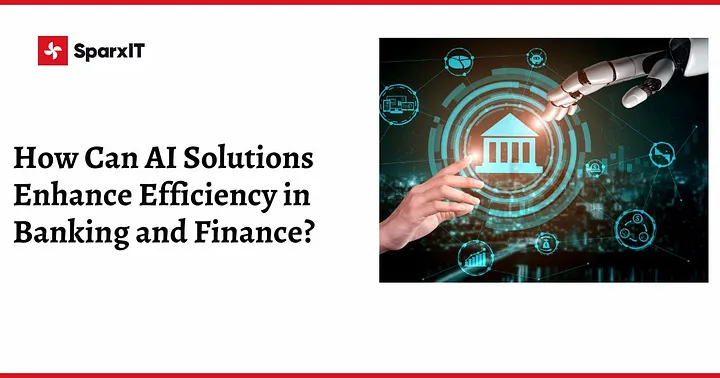Artificial intelligence (AI) has reformed business functions and services, significantly banking and finance. Incorporating AI into banking apps and services has made the industry more customer-centric and technologically advanced. With their strengthened efficiency and data-driven decision-making capabilities, AI-based systems are helping banks reduce costs and quickly determine false information, a feat above human cognition.
According to a Business Insider report, nearly 80% of banks recognize the conceivable advantages of AI in banking. A McKinsey analysis suggests that AI in banking and finance could attain a staggering $1 trillion potential. These statistics accentuate the instantaneous adoption of AI in the banking and finance industry, guiding to augmented productivity, cost savings, and enhanced services and efficiency.
With the help of AI development services providers, we’ll investigate the preliminary benefits of artificial intelligence (AI) in the banking and finance industry.
AI Applications in Finance and Banking
Our world has increasingly relied on artificial intelligence, and banks have already begun incorporating this technology into their offerings. The following are some significant uses of AI in banking sector.
Fraud Detection and Cybersecurity
People use apps or online accounts daily to pay bills, withdraw cash, deposit checks, and do various other digital activities. As a result, the banking industry must increase the amount of fraud it detects. This is where banking artificial intelligence becomes useful. With AI and machine learning, banks can detect defrauding activity, monitor system susceptibilities, reduce risks, and improve the prevalent protection of online banking.
Chatbots
One of the finest specimens of artificial intelligence in banking is via chatbots. Unlike people with set work hours, they operate around the clock once deployed. They also continue to learn about a specific customer’s usage habits, facilitating their adequate understanding of the user’s requirements.
Banks may guarantee that their consumers can access their apps whenever they want by incorporating chatbots into them with the help of app development firms. Additionally, by analyzing consumer behavior, chatbots may provide tailored customer service, lessen the workload associated with email and other channels, and suggest appropriate financial services and goods.
Monitoring Industry Trends
In the financial services industry, AI-ML enables institutions to process massive amounts of data and forecast current market trends. Sophistic machine learning methods aid in assessing market mood and making investment recommendations.
AI development services can also advise when it’s ideal to buy equities and flag potential dangers.
Client Relationship
Consumers are always searching for more convenience and better experiences. For instance, the fact that users could still use ATMs to deposit and take money during bank holidays contributed to their success. This degree of convenience has only spurred more innovation. Consumers can now use their smartphones to unclog bank accounts from the consolation of their residences.
Artificial intelligence is integrated into banking and finance app development services to enhance user convenience and customer experience.
Risk Assessment
External transnational events such as political upheaval, natural disasters, and currency changes particularly influence the banking and financial industries. In these skeptical times, it is imperative to exert extra caution when making business decisions. Generative AI services for banking provide discernment that helps you stay organized and make convenient decisions by equipping a straightforward vision of what’s ahead.
Analytics for Predictive
Two of AI’s most common use cases are comprehensive predictive analytics and general-purpose semantic and natural language applications. AI can find particular patterns and connections in data previously undetectable by conventional technologies.
These patterns point to unexplored cross-selling, sales prospects, or operational data indicators directly affecting revenue.
Conclusion
Banking and technology have many advantages, and AI is one of them. According to McKinsey’s worldwide AI survey report, sixty percent of financial services businesses have used at least one AI capability to improve business process efficiency.
This suggests that AI in banking has a bright and exciting future. AI can completely transform the banking industry by improving client experience, reducing errors, and streamlining procedures. Thus, all banking institutions must invest in AI solutions to provide clients with innovative experiences and top-notch services.







